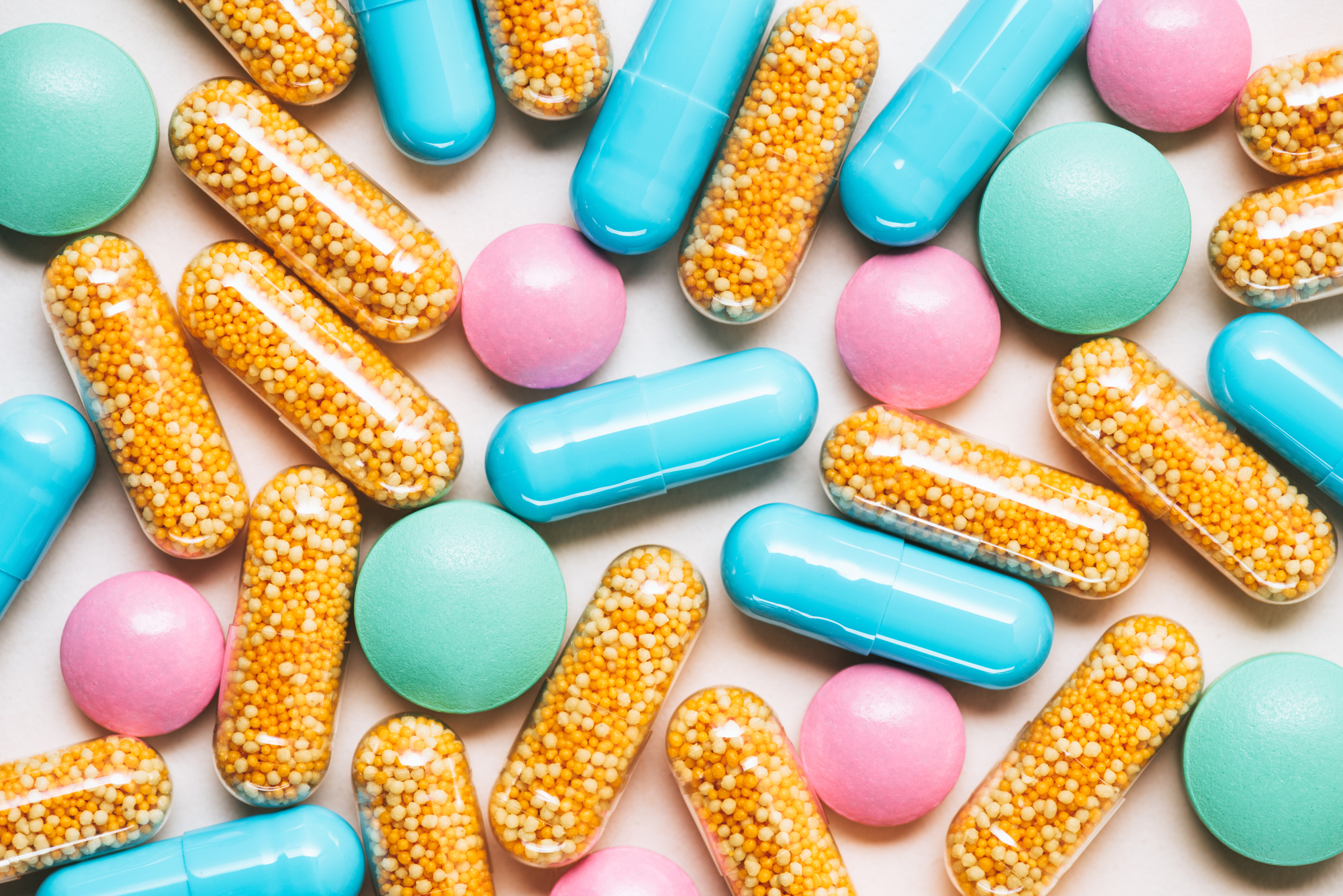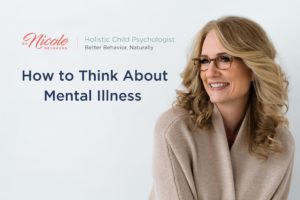When a child is diagnosed with ADHD, parents often have a flurry of questions. What is the best ADHD therapy? Should I medicate my child? Should I try a non-drug option first? What are the risks and benefits of ADHD medication?
Medication for ADHD is the most common therapeutic choice. There are also non-drug options in treating ADHD. What’s right for your child?
Sound familiar?
Your child struggles to pay attention in class. He fights with you over doing homework. She can’t sit still and explodes with frantic energy. He’s irritable and reactive, with big mood swings and bursts of aggressiveness. These are a few of the symptoms that can result in a child being diagnosed with ADHD. And that diagnosis sends parents in search of solutions. Overdiagnosis of ADHD is a real problem. So is overmedication.
Medication is far and away the most common form of ADHD treatment. There are more than 6 million children in the U.S. with an ADHD diagnosis, and most are prescribed drugs to treat their symptoms.
Understandably, parents want to know all their options when it comes to ADHD therapy. They want to identify the safest, effective, and successful solutions for ADHD, so their children can learn, grow, and thrive. Too often, a jump to medication shortchanges that education for parents.
I wrote recently about the benefits and risks of antidepressant medications for children. I thought we’d now take a similar look at the drugs used for ADHD treatment, and also examine alternatives to ADHD medication.
The most common ADHD medications
ADHD medications include both stimulants and non-stimulants. Simulant drugs are most often prescribed to treat ADHD. Both types of medications have risks and side effects. Commonly used stimulants are Ritalin, Focalin, Methylin, Concerta, Dexedrine, and Adderall. Less often, kids are prescribed non-stimulant ADHD medications such as Strattera, Tenex, and Intuniv.
The goal of these drugs is to reduce the symptoms of ADHD, including impulsivity, aggression, hyperactivity, inattention and emotional reactivity. There’s also an expectation that once on these drugs, children will perform better academically.
Let’s take a look at what the science says about how well attention deficit disorder medications work to address these issues.
Are ADHD meds effective?
One of the biggest challenges in determining the effectiveness of these medications? There’s a lack of long-term research.
Studies show ADHD drugs can deliver some short-term relief for some symptoms of ADHD. In some children, hyperactivity and inattention may improve. These changes can provide short-term improvements to kids’ behavior, including in the classroom. But over the long term, drugs used to treat ADHD don’t have lasting, positive effects on their symptoms.
One recent study looked at more than two dozen clinical trials that led to FDA approval for many of the most common medications for ADHD. This study found that most of these trials were short. Many lasted as little as a few weeks. The majority lasted less than six months.
Why does the length of these studies matter?
They may be long enough to measure a short-term boost to some ADHD symptoms. But they’re not long enough to assess whether those improvements translate into meaningful gains for kids over time.
There have been a handful of studies that have investigated the impact of ADHD medications over years, rather than weeks or months. These long-term investigations have concluded that commonly used drugs don’t deliver lasting improvements to the social, emotional, or behavioral symptoms of ADHD.
What about improvements to academic performance?
Inattention, hyperactivity, and impulsivity can make the classroom a challenging place for many kids with ADHD. Research shows ADHD affects some academic subjects more than others. Reading and math, for example, tend to be more negatively impacted than spelling. One of the goals of ADHD treatment is to help children and teens who struggle academically.
How well do medications for ADHD work to improve their performance in school?
We’ve seen a number of studies examine the effects of drugs on kids’ academic success. This research overall has found that drugs used to treat ADHD don’t improve kids’ academic performance. Children may experience an increase in productivity toward their schoolwork when using medication. That may look to parents and clinicians like a positive shift on the academic front.
Productivity is important. But ultimately we don’t only want our kids to be more productive in their attempts to learn. We want them to actually learn. And the science strongly indicates that kids don’t make academic gains as a result of being treated with ADHD medication.
One recent study examined more than 30 years of research on the effects of the drug in Ritalin on academic performance. Their analysis showed some minor improvements to math, and some of the expected gains to kids’ productivity. But overall, the research showed a lack of improvements to academic skill and success.
Are ADHD meds safe?
There are many safety issues concerning ADHD drugs that parents should know about. Let’s start by looking at some of the most commonly reported side effects of ADHD medications. The side effects of stimulant medications include:
- Insomnia and restless sleep
- A lack of appetite
- Weight loss
- Dizziness
- Increased blood pressure
- Stomachache and nausea
- Headache
- Moodiness
Non-stimulant ADHD medications share many of the same side effects:
- Loss of appetite
- Weight loss
- Nausea, stomachache
- Headache
- Moodiness
- Sleepiness and daytime fatigue
Studies show ADHD stimulant medications negatively affect growth rates in children. Recent research followed children taking ADHD stimulant drugs over several years, through adolescence and into young adulthood. This study found that with continuous, long-term use, ADHD stimulant medications suppressed height by an inch or more.
Like other research, this study also found medications were not effective in reducing ADHD symptoms over the long term.
Risk of overdose
Another significant risk for kids and teens that parents should know? The risk of overexposure and overdose.
Overexposure to ADHD drugs is more common than you might think. Over the past couple of decades, poison control centers have taken an average of more than 10,000 calls a year for ADHD medication overexposure. Nearly one-quarter of these children needed medical treatment. Almost 10 percent resulted in serious health complications. And the rates of overexposure have soared in recent years.
Children who are prescribed these drugs can accidentally take too much. That happens most often when parents or caregivers forget they’ve already given a daily dose. When medications are poorly stored, children—often very young kids—find their ways to these drugs and can ingest them. And sometimes children (usually teenagers) intentionally take ADHD medications beyond what’s been prescribed—or without a prescription.
It’s important for parents to know the symptoms of overexposure. They include:
- Agitation
- Irritability
- Vomiting
- Lethargy or drowsiness
- A rapid heart rate
- Dilated pupils
- Elevated body temperature
- Tremors
- Confusion
- Hallucination
If you have ADHD medications in your home, it’s important to store them safely, out of reach of young children and inaccessible to older children who might intentionally seek them out. And always seek immediate medical attention if you think a child might have ingested too much medication.
Risks to brain development
Children who take drugs for ADHD typically take these medications for years. Because kids are often diagnosed at a young age, they’re exposed to these medications while their brains are still developing. There is evidence that the stimulant used in some of the most commonly prescribed ADHD medications has an adverse effect on brain development. This impact on the developing brain can have lasting effects.
This safety issue involves the stimulant methylphenidate, the drug used in popular ADHD medications such as Ritalin and Concerta. Exposure to this stimulant in children 16 and under is connected to changes in the production of an important brain chemical, known as GABA.
GABA
You might have heard of GABA. It’s an incredibly active messenger in the brain. The brain’s GABA system plays an enormous role in regulating mood and emotions. It also helps to regulate sleep. Throughout childhood and adolescence, the system in the brain that puts GABA to work is still developing.
Research has found that exposure to methylphenidate during childhood has lasting effects on GABA production. Scientists discovered that this ADHD stimulant boosted levels of GABA in the short term. But this stimulant was connected to a long-term drop in GABA. Why? Scientists think it is likely because that short-term GABA boost sends a message to a child’s developing brain that it doesn’t need to produce as much of this chemical. Over time, the brain slows its GABA production. That may create a long-term deficit in GABA.
Not having enough GABA raises risks for emotional, physical and behavioral health problems, including:
- ADHD symptoms, such as impulsivity and trouble with concentration and memory
- Substance use disorders
- Sleep disorders
- Chronic stress
- Depression, anxiety and other psychological problems
This research suggests that by treating children under 16 with stimulant medication for ADHD, we are be exposing them to long-term risks for their emotional well being, behavioral and physical health. Among those risks? Some of the very symptoms the drugs are intended to treat.
Managing ADHD without medication
I hear from so many parents with questions about how to deal with ADHD without medication. The good news is, there are many useful options to consider for non-drug treatment for ADHD. These treatments often do what medication can’t do: address the specific root causes of the symptoms that led to a child’s ADHD diagnosis. And they do so without exposing children to harmful short- and long-term side effects. The symptoms of ADHD are complex. They often require a combination of strategies. Let’s take a look at a few of the most effective ones.
Behavioral treatment for ADHD.
Helping children learn new behaviors and coping skills can have profound, lasting effects on their ADHD symptoms. Parents and children work with therapists on simple strategies to use in their daily lives. Unlike medications, these behavioral tools help children develop the skills they need to function successfully—at school and at home, with family and with friends. These are skills children can use for their lifetimes.
I’ve written about some of the most effective ADHD strategies parents can use with kids. They include giving kids plenty of time to process information, taking lots of breaks, and making sure to acknowledge kids’ positive behaviors.
One fundamental (and often underused) behavioral strategy? Play! Giving kids a chance to move, create and explore stimulates their brain development and brain function. Playing offers kids an opportunity to process their emotions. It provides a space for them to solve problems constructively. Running around and being physically active channels their energy, giving them a sense of both freedom and control. These benefits are essential to all kids. But they’re especially important to kids with an ADHD diagnosis.
Dietary support.
Treating ADHD with diet is another way to address the core issues underlying their symptoms. Research shows diet and nutrients can influence the behaviors connected to ADHD. I recommend that children who show symptoms be tested for four essential nutrients: Vitamin D, Zinc, Magnesium, and Iron. I encourage parents to identify and address nutrient deficiencies before jumping into medication as a first treatment option. (You can read more about why these nutrients are so vital, here.) This information can serve as a starting point for a dietary strategy to treat ADHD.
Other dietary practices that can help?
- Avoiding processed and added sugars
- Steering clear of preservatives, chemical additives, and dyes in food
- Making sure kids drink plenty of water throughout the day
- Focusing on fruits and vegetables
- Feeding kids plenty of protein—especially at breakfast
- Considering well-researched natural supplements, including omega-3 fatty acids, valerian and lemon balm to help support brain development and reduce symptoms
Neurofeedback.
This is an exciting, promising area of ADHD treatment that not enough people know about. Neurofeedback uses sound and audio cues to deliver positive feedback to the brain, under the guidance of a trained therapist. That feedback can shift brain activity toward better self-regulation, and more emotionally and behaviorally healthy patterns. Neurofeedback is used to treat depression and anxiety.
Some of the strongest scientific research relates to ADHD
Several studies show that neurofeedback improves many of the hallmark symptoms of ADHD. It can reduce impulsivity and hyperactivity. It’s been shown to increase attention. It also improves children’s social and academic skills. New research shows the ADHD symptom reduction children receive from neurofeedback appears to be long-lasting.
Millions of children receive the same diagnosis: ADHD. But every child is different. Medication is largely a one-size-fits-all treatment. There may be limited benefits over the short term for some kids. But there’s no evidence that ADHD drugs improve symptoms over the longer-term of children’s lives. They do, however, expose them to serious and lasting risks. Because every child is different, non-drug treatments for ADHD can be used more sensitively to address the specific needs of each individual child.
And that’s what every parent I know wants: to help their child develop the skills they need to be happy, engaged, and successful in the world around them.
What You Should Do Next:
Sign up for my Better Behavior Naturally community newsletter
Sign up for my newsletter to get tips, resources, and supports to improve your child’s attention, anxiety, mood, and behavior…while making your job as a parent easier.
Enroll in one of my workshops
Check out one of my many workshops where you’ll join my exclusive community of parents in a one-of-a-kind virtual resource accessible 24/7. Whether you’ve got a child with a diagnosis like autism or ADHD, or are becoming more and more frustrated with a child who struggles to listen and cope, these workshops are designed to give you the information, tools, and support you need…whenever you need it.








